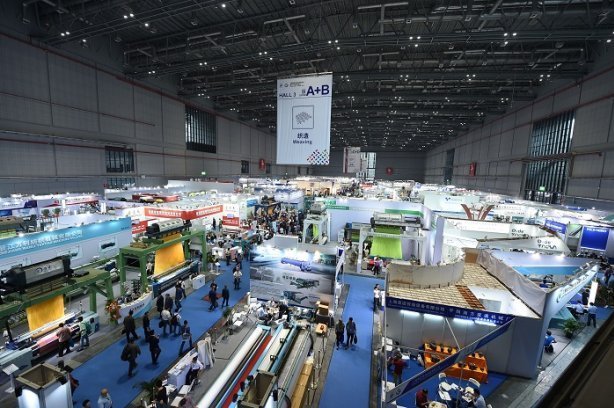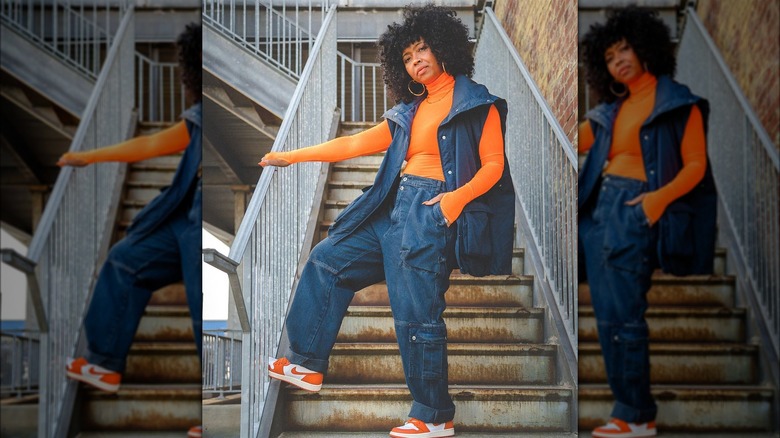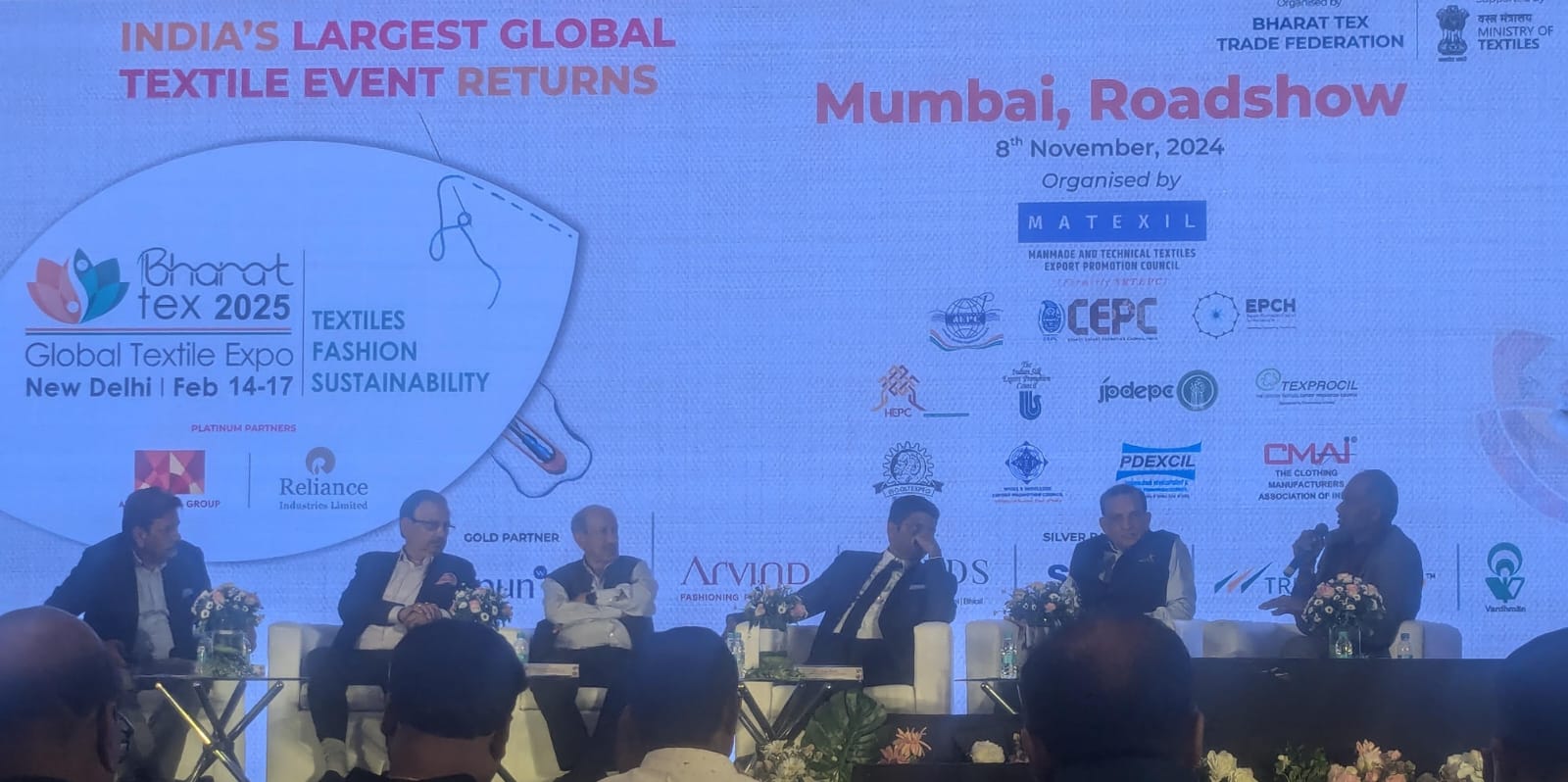FW

Mulberry, renowned British luxury fashion house known for its iconic handbags, is in the center of a takeover battle involving a retail conglomerate Frasers Group led by Mike Ashley. While Frasers Group has gradually increased its stake in Mulberry, the luxury brand's stakeholders remain largely opposed to a complete takeover. This dissonance is due to several reasons, primarily rooted in differing visions for Mulberry's future and concerns over brand dilution.
Frasers Group, which owns brands like Sports Direct and House of Fraser, has gradually increased its stake in Mulberry over the years and currently holds around 37 per cent stake. In late September 2024, Frasers Group made a takeover offer for Mulberry, proposing to buy the remaining shares at 130 pence each, valuing the company at approximately £83 million. Mulberry's board swiftly rejected this offer, stating it undervalued the company's "substantial future potential value." This decision was backed by Mulberry's majority shareholder, Challice, which owns 56.1 per cent of the company.
Reasons for disagreement
There are conflicting versions for the disagreement. While Mulberry's stakeholders, including its majority shareholder Challice say they, are committed to preserving the brand's luxury positioning and heritage. They believe a takeover by Frasers Group, known for its mass-market appeal, could erode Mulberry's exclusivity and prestige. On the other hand, Frasers Group's interest in Mulberry appears to be driven by a desire to replicate its successful turnaround strategies with other struggling brands. However, stakeholders argue that Mulberry's challenges are unique to the luxury sector and require a different approach.
Stakeholders believe Frasers Group's takeover bid undervalues Mulberry's potential. They argue the offer does not adequately reflect the brand's strong heritage, craftsmanship, and growth prospects, particularly in the burgeoning Asian markets. Meanwhile, there are concerns that associating Mulberry with Frasers Group's portfolio of mass-market brands could negatively impact its luxury image. This could alienate Mulberry's core customer base and hinder its ability to command premium prices.
Then there are governance and transparency issues. Some stakeholders have expressed reservations about Frasers Group's aggressive acquisition strategy and its track record with other acquisitions. There are concerns that Frasers’ may prioritize short-term gains over long-term brand building. And stakeholders have also raised concerns about the lack of transparency surrounding Frasers Group's intentions for Mulberry. This has led to speculations and uncertainty, further contributing to the opposition.
Stakeholders have also expressed reservations about Frasers Group's leadership and its track record with acquisitions. They point to the example of Debenhams, which was acquired by Frasers Group but ultimately fell into administration. This history has led to skepticism about Frasers Group's ability to successfully manage and grow a luxury brand like Mulberry. Perhaps this why, Mulberry's board is pursuing alternative strategies to raise capital and fuel its growth plans. The company recently announced a £10 million fundraising round, which Frasers Group was reportedly not informed about in advance. This move suggests that Mulberry is confident in its ability to secure funding without being acquired by Frasers Group.
Meanwhile, Mulberry has been facing challenges in recent years, including falling sales and the need for a £10 million emergency capital raise. However, stakeholders believe that the brand's turnaround strategy, led by new CEO Andrea Baldo, is the right path forward. What’s more, Mulberry's board of directors has rejected Frasers Group's takeover offer, stating that it undervalues the company's future potential. This underscores the board's commitment to preserving Mulberry's luxury positioning and pursuing its own turnaround strategy.
Indeed Mulberry's disagreement about a potential sale to Frasers Group reflects a fundamental divergence in strategic vision and concerns over brand dilution. While Frasers Group sees an opportunity to turn around a struggling luxury brand, Mulberry's stakeholders prioritize preserving the brand's heritage, exclusivity, and long-term growth prospects. The outcome of this takeover battle remains uncertain, but it highlights the challenges faced by luxury brands in navigating the evolving retail landscape and balancing the need for growth with the preservation of their core values.
After three consecutive years of growth, Australia's imports of men’s or boys’ knitted or crocheted clothing declined by 12.2 per cent to 33 million units in 2023.
In terms of value, men’s knitwear imports declined to $232 million in 2023, following a strong upward trend over the previous decade. The most significant increase was recorded in 2021, when the value of imports grew by 40 per cent. The imports or boy’s and men’s knitted or crocheted clothing peaked $263 million in 2022 before decreasing in 2023.
Accounting for 17 million units or 52 per cent of the total imports, China emerged as the largest supplier of men’s knitwear to Australia in 2023 China’s imports more than doubled those from Bangladesh, the second-largest supplier, which shipped 8 million units. Vietnam ranked third, contributing 2 million units, or 6.1 per cent of total imports.
In value terms too, China maintained its top position as Australia’s largest supplier of men’s knitwear in 2023, with imports valued at $116 million, representing 50 per cent of total imports.
It was followed by Bangladesh with imports worth $35 million, while Vietnam imported men’s knitwear products worth for $26 million during the year.
However, the overall trend from 2013 to 2023 shows a robust annual growth rate of 5.5 per centin imports of men’s knitted or crocheted garments. The period saw notable fluctuations, with the sharpest rise occurring in 2021 when imports rose by 23 per cent compared to the previous year. Australia’s imports men’s or boy’s knitted or crocheted clothing contracted in2023 after reaching a peak of 37 million units in 2022.
The Q2, FY25 consolidated net loss of textile manufacturer Alok Industries widened to Rs 262.10 crore as against a net loss of Rs 174.83 crore posted by the company in the July-Sep ‘23 period.
Jointly owned by Reliance Industries and JM Financial Asset Reconstruction, Alok Industries registered a 35.46 per cent decline in revenues to Rs 885.66 crore during the quarter from revenues of Rs 1,372.34 crore in the corresponding quarter a year ago.
The company’s expenses declined by 25.45 per cent to Rs 1,160.63 while its total income, including other income contracted 34.97 per cent to Rs 898.78 crore in the September quarter.
Operational in in-home textiles, cotton yarn, apparel fabrics, garments and polyester yarn markets, Alok Industries is partly owned by Reliance Industries with a 40.01 per cent stake and JM Financial Asset Reconstruction Company with a 34.99 per cent stake.
The International Monetary Fund (IMF) has called on Pakistan to eliminate preferential treatment, tax exemptions, and other protections for its agriculture and textile sectors, which it claims have hindered economic growth for decades. In a recent staff report, the IMF highlighted these sectors' failure to contribute significantly to national revenue while consuming substantial public funds, contributing to inefficiencies.
As part of a $7 billion Extended Fund Facility (EFF), the IMF emphasized the need for Pakistan to abandon outdated economic practices to escape persistent boom-bust cycles. The report pointed out that over 40.5 per cent of the population now lives below the poverty line, largely due to stagnant economic conditions.
The IMF criticized the country's export basket, which is heavily reliant on agriculture and textilesparticularly cotton yarn and woven fabrics. This dependency limits diversification into more technologically advanced goods, as Pakistan ranked 85th in the Economic Complexity Index, a stagnant position since 2000.
Additionally, the IMF noted significant tariff barriers that stifle competitiveness and inhibit advanced manufacturing. The textile sector has notably benefitted from various subsidies and preferential tax treatments since 2007, resulting in the highest tax gap relative to its value added.
To improve economic conditions, the IMF urged the Pakistani government to simplify trade policies in the upcoming National Tariff Policy (2025-29) and discontinue export subsidies and local content requirements, which may lead to misallocation of resources and violate international trade obligations.

ITMA ASIA + CITME 2024, Asia’s leading business platform for textile machinery and garment technologies, opened in Shanghai on October 14, marking a significant event for the textile industry. The five-day exhibition, which runs until October 18 at the National Exhibition and Convention Centre, offers a comprehensive display of solutions aimed at advancing manufacturing processes and promoting sustainability in the textile sector. This year’s event spans an impressive 160,000 square metres across six halls, hosting approximately 1,700 exhibitors from 22 countries and regions.
The exhibition is owned by CEMATEX, along with its Chinese partners, the Sub-Council of Textile Industry (CCPIT TEX), China Textile Machinery Association (CTMA), and China Exhibition Centre Group Corporation (CIEC). It serves as a vital platform for introducing innovations and solutions that can drive productivity and environmental responsibility in the textile industry.
Growing global participation and showcase of sustainability
Alex Zucchi, President of CEMATEX, expressed enthusiasm over the exhibition’s growth, highlighting a 9 per cent increase in size compared to the 2022 edition. Zucchi noted the importance of showcasing automation, digital technologies, and environmentally friendly solutions to build a more sustainable textile industry.
Gu Ping, President of CTMA, emphasized the exhibition’s relevance to China’s textile industry as it transitions toward more advanced, high-end manufacturing. The 2024 edition aligns with the country’s ‘new quality productivity’ drive, focusing on intelligent technologies and sustainability. Ping highlighted the critical role of the exhibition in supporting China’s evolving textile sector, which is increasingly prioritizing sustainable and efficient production practices.
Technological innovation and sector highlights
ITMA ASIA + CITME 2024 encompasses a broad range of technologies, covering the complete textile and garment manufacturing value chain. The product categories featured include spinning, weaving, knitting, printing, dyeing and finishing, nonwovens, embroidery, garment manufacturing, and recycling technologies. Automated production lines and digital solutions are among the key highlights, with a strong focus on enhancing productivity and reducing the industry's carbon footprint.
The dyeing and finishing sector commands the largest space, occupying 22 per cent of the exhibition area. It is followed by spinning and man-made fibre production, which take up 19 per cent, knitting at 16 per cent, weaving at 14 per cent, and printing and inks at 10 per cent. The showcased technologies offer manufacturers an opportunity to explore advanced machinery that supports efficient and sustainable textile production.
Global Exhibitors and Intellectual Property Safeguards
Exhibitors from mainland China dominate the event, occupying over 80 per cent of the exhibition space. International participation includes manufacturers from Germany, Japan, Italy, Taiwan (China), and Belgium. The exhibition features a carefully curated showcase, with only textile machinery manufacturers and intellectual property (IP) rights holders eligible to participate.
In addition to the technological displays, ITMA ASIA + CITME 2024 has implemented measures to protect intellectual property rights. An onsite IP office has been established, staffed by legal and technical experts to oversee and resolve any IP-related disputes during the exhibition.
Extensive promotional efforts to attract buyers
To ensure strong attendance, the organisers undertook an extensive promotional campaign both locally and internationally. This included overseas roadshows in key textile production hubs in Asia and intensive direct marketing initiatives. Collaborations with trade media partners further enhanced visibility, helping to attract a diverse group of buyers to the exhibition.
ITMA ASIA + CITME 2024 is organised by Beijing Textile Machinery International Exhibition Co Ltd and co-organised by ITMA Services. The Japan Textile Machinery Association (JTMA) also plays a special role as a partner of the event, adding to its global significance.
Heberlein Technology, established in 1835 and a leader in air interlacing and air texturing jets for synthetic filament yarns, has become a corporate member of the International Textile Manufacturers Federation (ITMF). Heberlein specializes in developing key components for optimizing synthetic yarn processing.
Christian Schindler, ITMF Director General, welcomed Heberlein’s membership, highlighting the value of their expertise in enhancing ITMF’s textile value chain. He noted that Heberlein’s involvement would bolster the organization’s knowledge, especially in machinery and components.
Martin Zürcher, CEO of Heberlein, emphasized the benefits of ITMF membership, including access to insightful industry statistics, surveys, reports, and networking opportunities at ITMF conferences, which help understand global textile dynamics.
Archroma, a global leader in specialty chemicals, has launched the NTR Printing System, marking a breakthrough in bio-based pigment printing. The system, based on renewable materials, allows brands to produce durable, brilliant black shades while minimizing their environmental impact.
The NTR Printing System addresses previous challenges of bio-based pigments, such as poor color fastness and production performance. This innovation utilizes renewable feedstock in its pigment dispersion, binder, and fixing agent, ensuring excellent wet- and dry-rubbing fastness and softness on various fabrics.
Designed for versatility, the system is compatible with multiple technologies, including printing and continuous dyeing. It is especially suited for markets like denim, where sustainability, comfort, and durability are key, as well as knits and babywear requiring exceptional softness and safety.
The NTR system comprises three main elements: Printofix Black NTR-TF, a non-gelling black pigment with 79 per cent renewable carbon content; Helizarin NTR-SS, a formaldehyde-free binder; and Luprintol Fixing Agent NTR-HF, a fixing agent designed for high wet fastness. These elements are being evaluated for compliance with global standards such as bluesign and GOTS.
Archroma’s latest development reflects its commitment to sustainability, aligning with the company’s ‘Planet Conscious+’ roadmap. This innovation builds on a decade of leadership in sustainable pigment printing, which began with the introduction of the first formaldehyde-free system in 2012.
At ITMA ASIA + CITME 2024, 42 VDMA member companies showcased innovative machinery across various segments, including spinning, weaving, knitting, and textile recycling. The German contingent, the largest foreign participation, highlighted smart technologies aimed at green textile production.
Georg Stausberg, board member of VDMA Textile Machinery and CEO of Oerlikon, emphasized the importance of energy efficiency and resource conservation in meeting Asia’s growing demand for sustainable textile solutions. VDMA members like Oerlikon, Saurer, and Gneuss presented cutting-edge technologies, focusing on recycling, reducing emissions, and increasing energy efficiency.
Despite a challenging global market, German textile machinery exports fell only 3.4 per cent in 2023, with exports to key markets like China and Turkey declining further in 2024. However, VDMA members remain optimistic about sales opportunities in Asia, with expectations of improvement in the next six months, particularly outside China.
VDMA’s continued presence in Asia, through events like ITMA ASIA and Singapore shows, underscores their commitment to promoting sustainable and smart textile solutions. Exhibitors demonstrated technologies like Groz-Beckert’s energy-efficient tools, Gneuss recycling solutions, and Karl Mayer’s resource-saving innovations, highlighting the industry’s shift toward greener practices.
Harald Weber, Managing Director of VDMA Textile Machinery, affirmed that ITMA ASIA remains a key platform for member companies to drive the transition toward eco-friendly textile production in Asia.
Schneider Group's Authentico brand is set to attend the 2024 Textile Exchange Conference from October 28-31 at Pasadena Convention Center, CA (booth 55). Authentico promotes a fully transparent and traceable wool supply chain, from farm to garment, offering ethical and high-quality wool that meets rigorous standards of responsibility.
The event will highlight the brand’s story, alongside its first fabric collection in partnership with Marzotto Group, which was launched at Milano Unica in July. The collaboration aims to provide premium wool fabrics that combine style with ethical production practices. Both Schneider and Marzotto, known for their long-standing tradition of quality, focus on traceability and responsible innovation throughout the supply chain.
Brands under the Marzotto umbrella, including FratelliTallia di Delfino, Guabello1815, Marzotto Fabrics, Marlane, Opera Piemontese, and Estethia GB Conte, have joined the journey toward ethical and traceable wool production. The partnership between these wool mills and Authentico continues to evolve, with the Textile Exchange Conference being the next step in showcasing their commitment to sustainability in the wool industry.
This collaboration reinforces Schneider Group's dedication to ethical sourcing, ensuring that both the fashion industry and consumers can make informed choices about premium quality wool products.
At ITMA ASIA + CITME, Stoll, part of the Karl Mayer Group, will present advanced textile machinery catering to the Asian market. The company’s showcase includes machines for fine fabrics and ready-made knitwear, reflecting key trends in China's growing demand. Stoll’s CMS 530 in gauge E20, featured at an in-house show in Changzhou, highlights the production of fine, high-quality flat knitwear. The knit and wear technology, allowing garments to be produced in a single process, is poised for rapid market growth.
The ADF 530-32 ki Flex, a multifunctional machine, will make its debut outside Europe, offering versatility in flat knitwear production. Stoll’s Nocturno collection, designed to inspire new applications, will also be a highlight.
Two CMS series models, the CMS 503 ki L and CMS 703 ki knit and wear, will address the needs of the Asian market. The CMS 503 ki L offers a wide variety of patterns and flexibility in size, while the CMS 703 ki knit and wear efficiently produces fine, high-quality garments.
An in-house show at Karl Mayer (China) will run alongside ITMA ASIA, offering visitors a closer look at Stoll’s full range of machines. Visitors will experience the innovative capabilities of machines as well as the newly opened Stoll TexLab for product development and experimentation.












